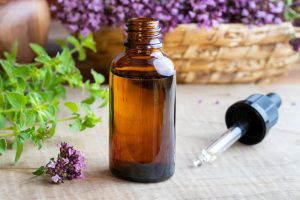By Editorial Staff | sponsored links disclosure
Bad Breath Symptoms and Why You Should “Avoid” Using Commercial Mouthwash

What are the symptoms of bad breath? This may sound like a ‘pointless question’ to ask, you may think it’s obvious to the person who actually has bad breath, but that is not necessarily the case.
You may have tried this yourself… cupped your hands around your mouth, blown into them and sniffed for any signs of bad odor to determine if your breath smells. But that doesn’t work, your body will naturally acclimatize to its own odor. This is necessary so that the sensory system will recognize odors that are external to the body.
Think you may have bad breath? Here are 7 questions to ask yourself:
- Do you experience nasal drip?
- Do you have allergies?
- Do you have a chronic dry mouth?
- Do you experience a sour taste in your mouth?
- Do you have a coating on your tongue?
- Do your friends offer you gum or breath mints?
- Do strangers turn their heads away when you speak?
These questions may sound a little basic but if you answered yes to any of them there is a good probability that you have a problem with bad breath. If you answered any of them with ‘I don’t know’ you need to become more pro-active and observe if any of the conditions apply to your situation.
It’s important to understand that for the most part we’ll be discussing bad breath remedies that apply to the ‘average’ bad breath problem. If you think you may have a more serious medical condition then you will need to see a dental physician or a doctor.
What about commercial mouthwash products?
As we mentioned earlier everyone has bad breath on occasion, and for most people, the first response is to reach for a bottle mouthwash, a quick swish around the mouth and all’s ok!.. unfortunately not? Not only is this ineffective but it can also exacerbate the condition. Why is this so?
Mouthwash contains flavoring and dyes but most importantly the primary component is alcohol! They claim to kill bacteria, which is true in most cases. However, the bacteria is quick to return because the alcoholic content causes dry mouth which is the leading cause of bad breath. It creates a very ineffectual cycle of repetition.
Commercial mouthwash products may also contain other harsh chemicals. Studies have shown that excessive amounts of mouthwash irritate the gums, tongue, palate and mucous membranes in the mouth.
It would be prudent to look at some of the other methods available to tackle bad breath and to avoid commercial mouthwash products, but if you must… then only use mouthwash products that are ‘alcohol free’.
‘Do-it-Yourself’ mouthwash… the safer alternative
If you would like to freshen your breath try preparing your own breath freshening mouthwash. A rinse consisting of a few drops of peppermint oil in a glass of water will do the trick nicely just don’t count on it to kill bacteria. Also just use it as a rinse and do not swallow.
There are other essential oils that work as well. Try tea tree, myrrh, spearmint, and ginger are also effective.
Rinsing your mouth with salt water is a great home remedy for a sore throat. It is also good for eliminating bad breath. You might also try rinsing with lemon or lime water as well. Both are equally effective and may taste a bit more pleasant than salt water.
Try drinking a small amount of apple cider vinegar (one tablespoon) in a glass of water at least once a day – it also aids digestion during meal times.





